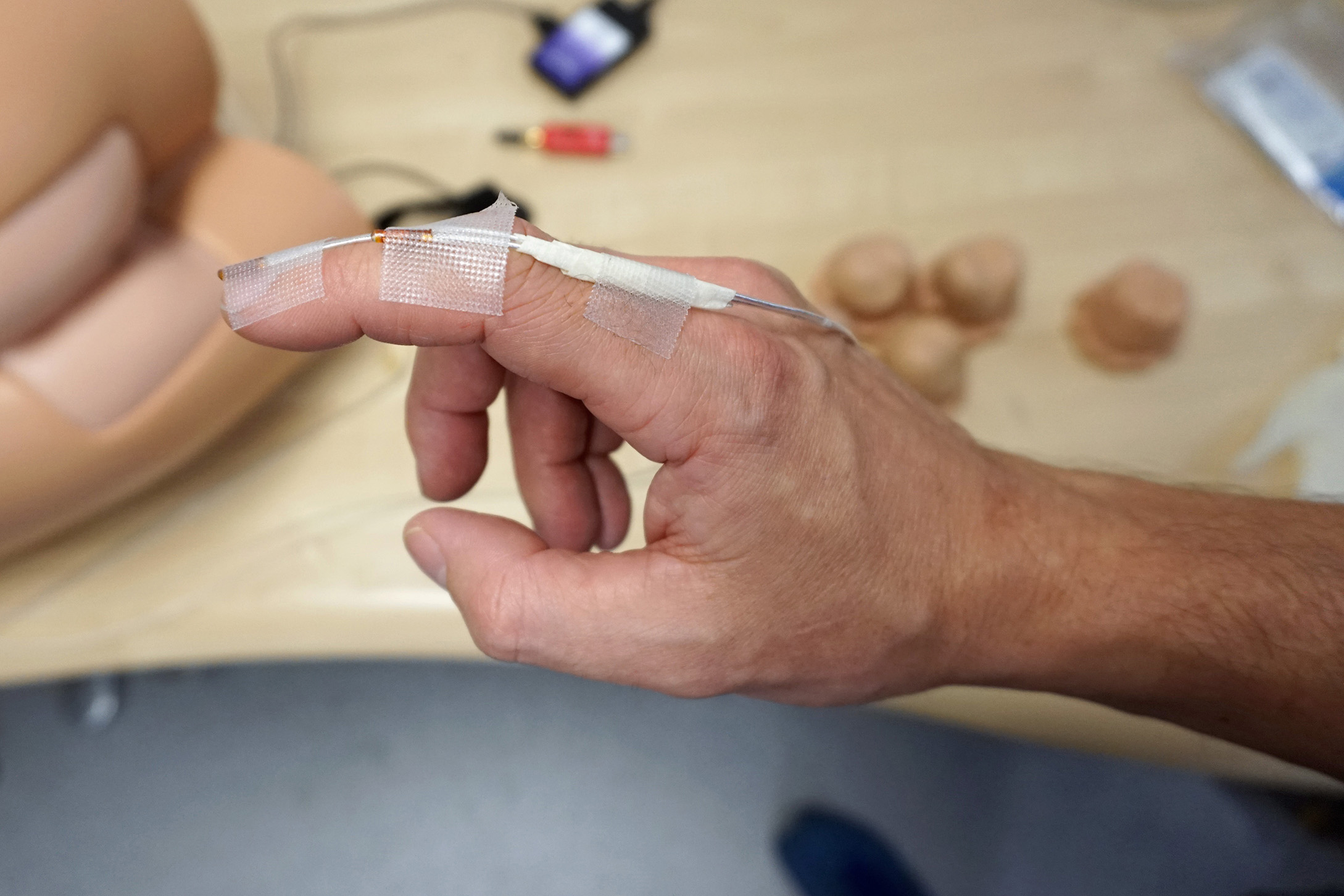
Findings on Palpation – workshop
Chelsea & Westminster Hospital
Centre for Engagement and Simulation Science
3rd floor
Tue 28 Feb, 7 – 9pm
£5, con. £3
Book here
Debating the relevance of haptics for sculptures & bodies
Join artist in residence Johann Arens and Dr. Alejandro Granados (Imperial College London) at Chelsea & Westminster Hospital for a workshop investigating tactility in art and the potential of haptic interfaces.
Participants are invited to negotiate the possibilities of contact-based simulation tools and the implications for the plasticity of sculpture as well as bodily sensuality. Our point of departure will be the simple observation that both, medical training practice and experientially driven art are conditioned by a shared frustration; the limitation of touch.
The aim of this co-enquiry is to gauge the significance of computed simulation for cultural artefacts and the intimacy of the audience. How can tactility play a role in contemporary art perception? The workshop will feature a haptic simulation system constructed to allow medics in training to gain experience in palpation before they start examining patients. We will be debating a hijack of such biomedical imaging software to render the sculptural dimension of simulations, in both the physical and likewise the virtual interface.
---
Johann Arens uses installation and video to survey the documentary properties of public interiors and their inherent social textures. His sculptural interventions are an enquiry into the role of mobile interfaces, the desire to touch artefacts and the mechanisms of user behaviour. Recent exhibitions include ‘Preis für Junge Kunst’ Neuer Aacher Kunstverein, Germany; ‘Somatic Matter’, Le Foyer, Zürich; ’New Acquisitions’, Fondazione Fotografia Modena; ‘TTTT’, Jerwood Space, London; and public commissions with Kettle’s Yard Cambridge and Arnolfini Bristol.
Dr Alejandro Granados is a researcher in the Simulation and Modelling in Medicine and Surgery group at Imperial College London. He uses the sense of touch in virtual environments, a technology called ‘haptics’, to reproduce the forces felt by clinicians while palpating organs of the human body. His research focuses on understanding palpation skills and designing simulation-based learning tools for training and learning unsighted physical examinations. He has published his work at international conferences in fields related to medicine, haptics, biomedical modelling and sensors technology and has demonstrated his technology at numerous public engagement events in the UK and internationally.

